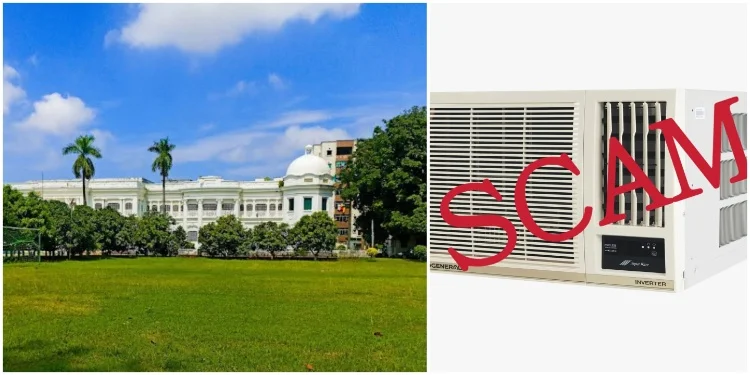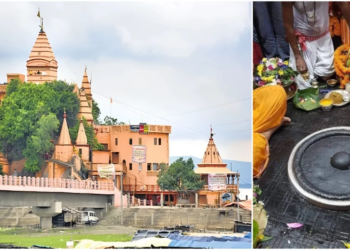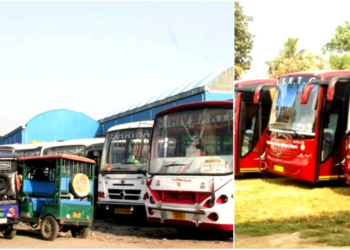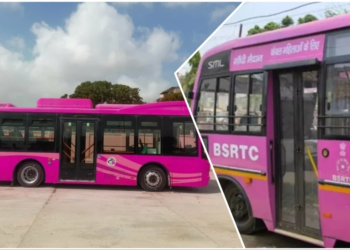Bhagalpur Medical College Scam cases are becoming more common, not because the air conditioning is on. Once again, Jawaharlal Nehru Medical College and Hospital is involved in a controversy because they bought a ₹17 lakh air conditioner after the contract with the supplier had already ended. Anything that sounds shady is often for a reason. Not only is document management a challenge—instead of one count for AC, we find both higher and lower numbers, and officials get ghosted without explanation—there is real money to be accounted for. We should straighten the place up.
It is once more the Jawaharlal Nehru Medical College and Hospital, formerly Bhagalpur Medical College, that has come into the media spotlight, and the reason now is a shady air conditioner (AC) purchase order that cost more than ₹17 lakh. This isn’t the first event where odd transactions have happened. But this recent development? Here is an example of what not to do in hospital procurement.
AC Deal Gone Wrong: Agency Gets Order After Contract Expiry

When this happened, the hospital’s administration placed an order with a Samastipur agency for AC supply worth ₹17.44 lakh, even when its contract with them had ended in March 2025. The order was made official on May 17, 2025, telling the agency to deliver 25 AC units within 21 days. It was the work of the Superintendent’s office that first specified:
- 15 Split ACs – Price is ₹41,500 each
- Each window AC costs ₹37,000, so ₹740,000 for 20 units.
But get this: Their contract with the agency was already done, despite what RHBs said. Contract renewal has not been noted, re-tendering did not happen, and there is no understanding of how the non-contracted vendor got approved.
In other words, this has launched a flood of questions into mainstream debates. How was the order issued in May, since the contract on which it was built had been deemed void in March? There is no obvious solution. During his period as Superintendent, Dr. Uday Narayan Singh firmly stated that he did not approve such a purchase. He outlined that:
A departmentally funded AC was bought earlier for the ART Centre, and the committee did the purchase as per departmental rules. The data showed no reports of air conditioning during March when he began serving as Principal. When the media spoke to Dr. Hemshankar Sharma about this incident, the former superintendent quickly disappeared by saying he was at a meeting. Even now, the post of superintendent is held by Dr. Avilesh Kumar, who hasn’t responded to many requests for his side of the story.
25 or 35? Confusion Over Number of Units Adds More Doubt
More havoc follows after that. It is stated in the order letter that 25 AC units were sent, but hospital staff say it was 35 units. This 10-unit deficit is another reason to believe there is something wrong with the Bhagalpur Medical College Scam. The hospital authorities have not explained the difference between the two sets of numbers in an official letter.
Many other cases like this one exist. Bhagalpur Medical College administration has come under the spotlight for possible financial mishandling, for instance, unofficial withdrawals from the nurses’ funds. The case from 2017 is still stuck in bureaucracy, and documents are supposedly still pending, with no clear final judgment. Because investigations here are slow and those responsible escape accountability, Bhagalpur Medical College is now an example of how public organizations can dodge being open and honest.
Bhagalpur Medical College Scam: Was There a Purchase Committee Meeting?
Some very important questions still have no answers at all:
- Did the purchase committee get a say in agreeing to this ₹17 lakh order?
- Was any department in the hospital part of the process that gave the hospital approval?
- Is the payment process over, or is it still not complete?
- Why are government figures either avoiding answering questions or not replying at all?
The Bhagalpur Medical College scam highlights how there is no proper supervision. If nobody in the administration wants to discuss it, a major audit is needed. Poor management in public health infrastructure wastes precious resources, but it also influences the quality of patients’ lives. If no one steps in from government agencies or watchdogs. Then this case may end up just like the nurse salary scandal, forgotten in the bureaucracy. There should be more openness at Bhagalpur Medical College and less attention given to the air conditioning.













